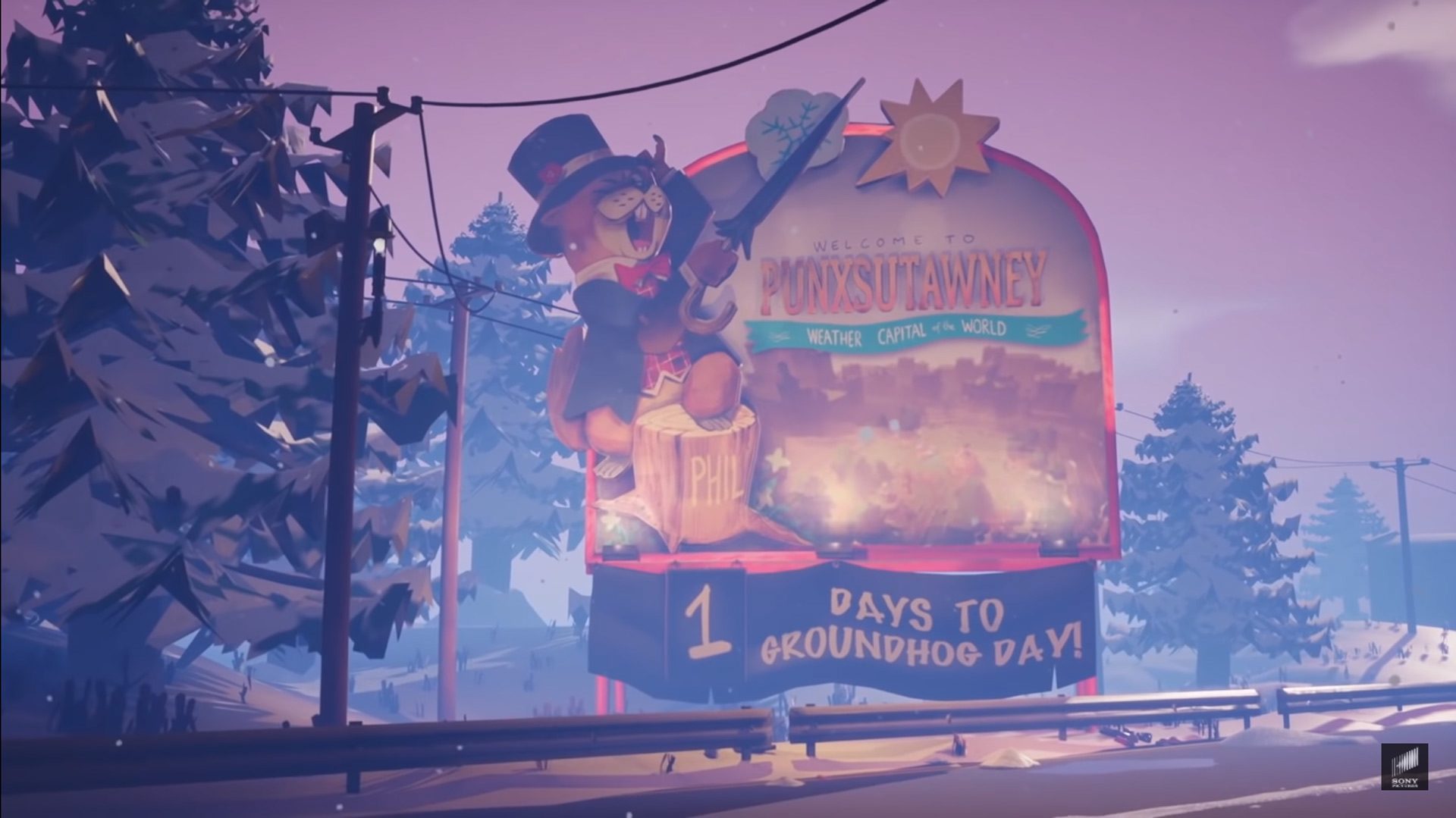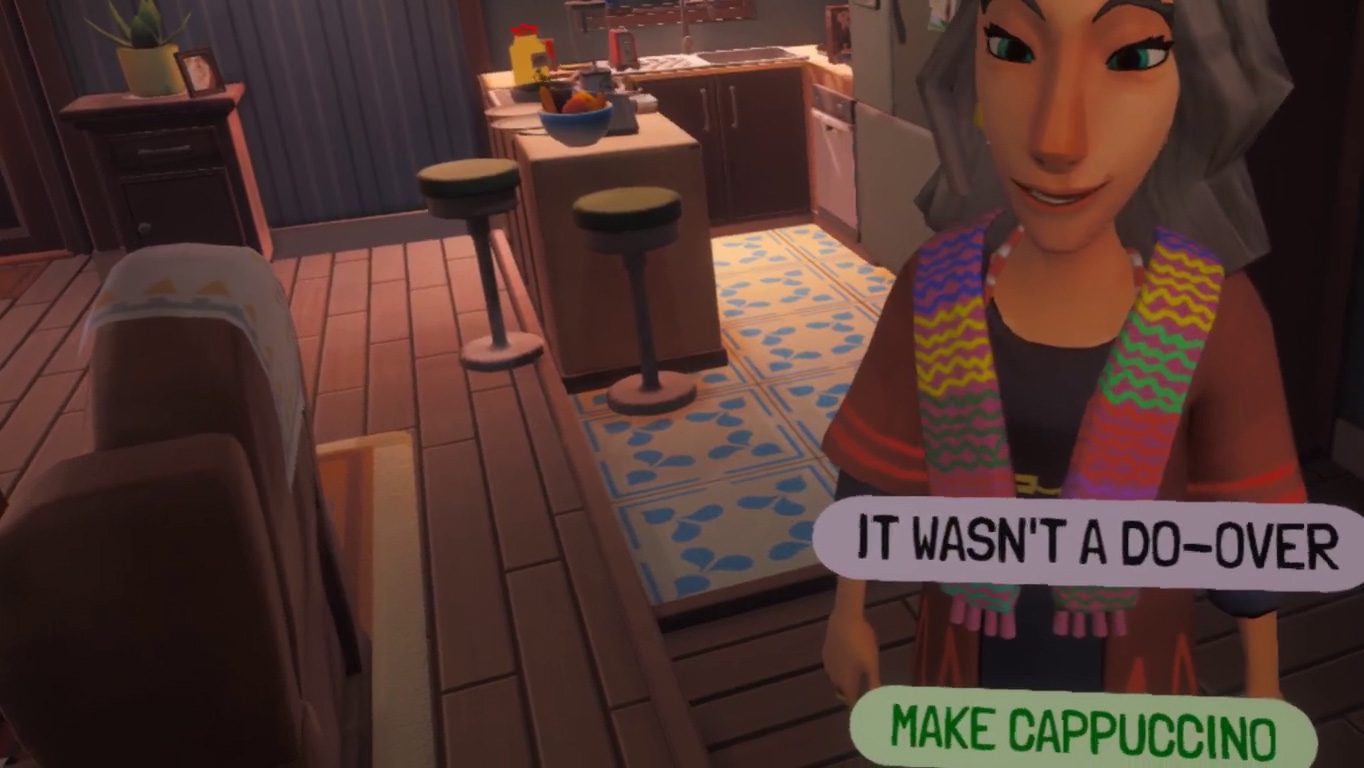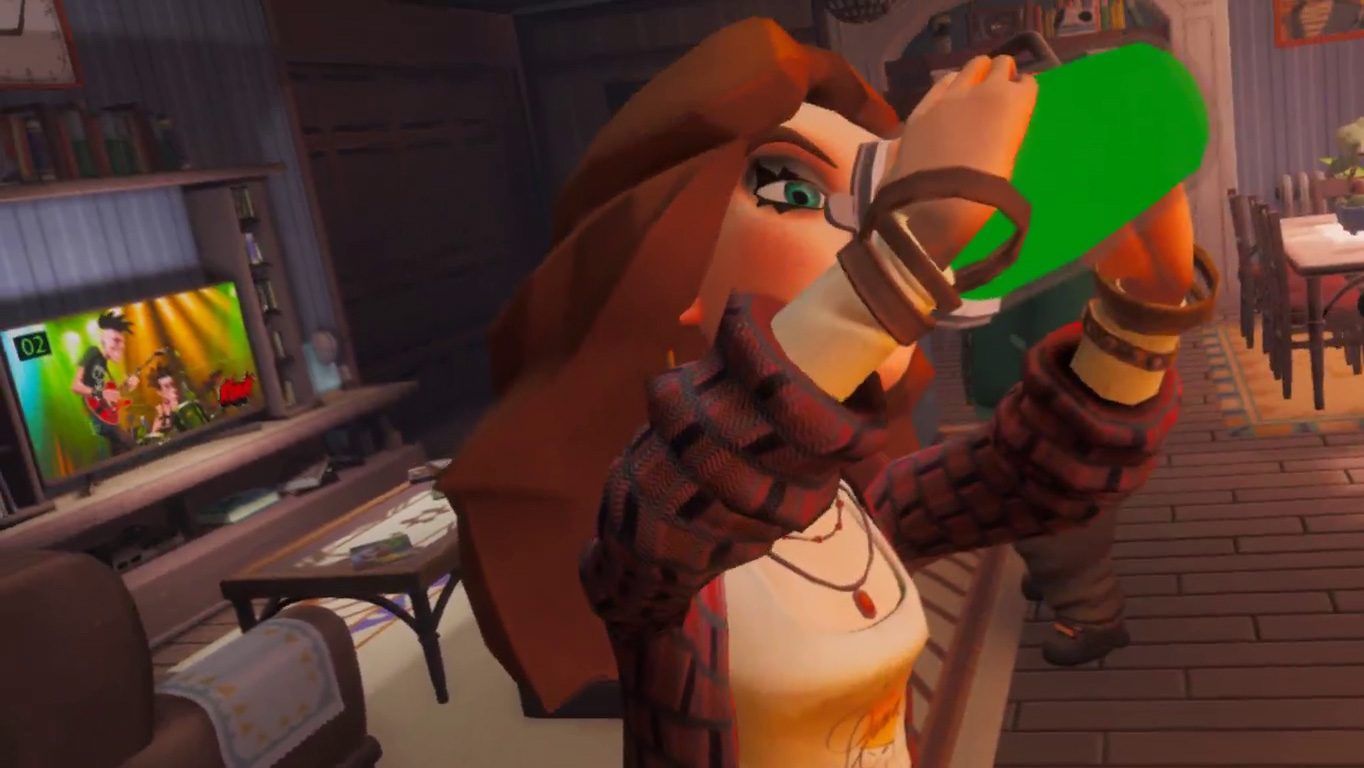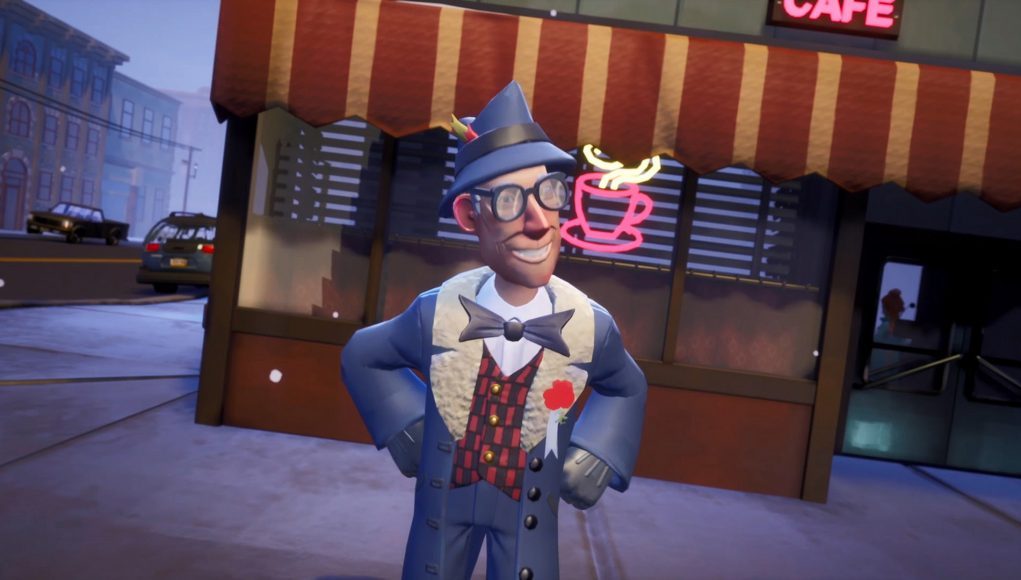Words I never thought I would say: the iconic ’90s film Groundhog Day (1993) finally has a sequel … and it’s a VR game. Although I don’t think anything can live up to the original—game, film, or otherwise—Groundhog Day: Like Father Like Son shows it’s capable of delivering some sincere moments that definitely stick. A healthy amount of tedium may be best left to a film montage sequence, although it’s hard to complain too much about doing the same thing over and over considering the source material.
Groundhog Day: Like Father Like Son Details:
Developer: Tequila Works
Publisher: Sony, MWM Interactive
Available On: Steam (Vive, Rift), Oculus (Rift), Viveport (Vive, Rift) PlayStation Store (PSVR)
Reviewed On: Rift
Release Date: September 17th, 2019
Price: $30
Gameplay
It’s present day, and Phil Connors has passed away, leaving his family to mourn his death with a yearly memorial service that’s exactly one day before Groundhog Day. His youngest son, Phil Connors Jr., is a snarky, egotistical 20-something who’s just like his dad was before he broke out of his life-changing, sisyphean time loop 26 years prior.
As a hip-kid-influencer on his way to a big meeting with a streaming video company, Junior is trapped in his hometown of Punxsutawney, doomed to live the same day over and over until he can learn to accept his flaws, let go of his ego, and reconnect with his friends and family. He’s not there for all that though, but rather to monetize his dad’s memorial service in a vlog before finding out that he’s snowed in. Déjà vu, all over again.

Groundhog Day VR is in essence an updated rehashing of the original film, one that I found to be a genuinely sincere take on things. Thanks to the game’s cast of talented voice actors, it delivers some key moments that will definitely hit you right in the feels. If you’ve ever lost a parent, ruined a friendship, wished you could help someone but didn’t know how, Groundhog Day VR delves into all that, and in a way that may have you sitting back and reflecting on your own life. Although its overall story is tarnished somewhat by the lack of any real laugh-out-loud humor, instead tending towards dad joke-level humor and aimless sarcasm from Junior the story’s emotional beats definitely do their best to impress.
As a side note: sadly, the game does away with the same comedic morbidity from the original film—i.e. Phil Sr. finally coming to the end of his rope and killing himself in funny and interesting ways. There are a few ways to reset the day unexpectedly, namely drinking alcohol until blackout, spraying yourself in the face with spray paint, and drilling into your own head, but nothing that felt unique or particularly surprising. This strikes me as a bit of a misstep, considering the game doesn’t shy away from other adult themes. I was hoping to save lives, and put my own in danger, but the VR sequel decides to be a little less risqué than its namesake.
Although I basically liked the story, and its cast of quirky characters, I found the gaming side of things to be a bit of a letdown. Essentially, you’re given a dialogue tree in every NPC interaction that I found was less about user choice, and more about following your prescribed duty. Whether you like it or not, you will screw up everything in every way. Whether you like it or not, you will become nice person and you will repent.
If find this lack of user choice a big part of the game’s flow; it’s less about connecting the dots on your own and being clever, and more about beating your head against the wall until you’ve checked all the boxes on your list, where you’re eventually given a decent response that doesn’t make you sound like a piece of shit. Although these ‘correct’ responses are highlighted for later use, it’s an absolute bore having to listen to the exact same dialogue for the umpteenth time (somewhat forgivable considering) and deliver the same dialogue too.

There are a number of mini-games too, which make for sometimes interesting breaks. Although none of them were geared toward skill-building for later use, and rather act as hurdles to jump over (and in some cases over and over), they’re varied and interesting enough to keep you going, which more often than not results in unlocking the all important dialogue shortcut so you can skip some of the tedium later on. It’s not until about halfway through that you’re given those dialogue shortcuts though, so you’ll find yourself repeating both NPC and your own unskippable dialogue until things speed up closer to the end and you finally see the light at end of the tunnel.
In the end, it took me about five hours to complete. Besides a few easter eggs hidden throughout, there isn’t much reason to head back in if you’re already finished the story. The creators maintained it would feature a branching story, but that’s only true in the context of what you decide to work on first, be it the relationship with a long-lost lover, or pleasing your mom by finishing a statue of your dad in the park. Everything must be done before the game is over, and it’s not intertwined enough to make one decision really affect another.
Besides some less than engaging gameplay elements though, Groundhog Day VR had enough in store to get me through this in a single sitting. I personally found it pretty entertaining, but not necessarily rising to the heights of ‘fun’.
Immersion
Character design is charming, although animation can be pretty rough around the edges in Groundhog Day VR at times, which is unfortunate because I can really see that the broad strokes were well-intentioned here.

NPCs stayed well enough away from the uncanny valley with their cartoony style, but the fit and finish of the characters left something to be desired. On a flat screen, it may not be so apparent, but in VR a weird mouth movement, clipping into another character, or engaging in dialogue on top of another NPC can really take you out of the scene. Instead, I found most of the game’s memorable moments were presented in still-frame flashbacks where dear old dad teaches you about life.
Another impingement on immersion was overall poor object interaction. Items have only one or two grippable areas, and not always in the most comfortable or logical places. Simply repositioning a menu in your hand or reaching for a glass becomes a game of skill in and of itself. A yellow highlight appears when you’re close to picking up items, which essentially works as a visual cue, but that doesn’t stop you from really mangling objects if they’re too close together and you don’t delicately pick them up and set them down.
The worst offender by far in terms of object interaction was the guitar, which plays a fairly important role later in the game. Getting through that part was a nightmare, which thankfully was a one-off mini-game, but strumming the instrument was so off-kilter that you’re almost guaranteed to activate a wrong movement if you’re not extremely careful.
Overall though the settings are extremely cohesive, and really bring in the small town feel that the film exudes.
Comfort
While not the most immersive, teleportation is by far one of the most comfortable ways of getting around in VR. There isn’t any other movement schemes besides snap-turn for users with front-facing sensor arrangements.
Although there is an automatic seated option, which raises your virtual height up to standing level, seated users may still have issue with reaching both higher and lower objects. I played mostly seated, although there were time when I had to physically stand up to reach a bottle on a high cabinet, or bend over to get a coin on the ground. I think a better force-grab would have addressed this, but it’s simply not present in the game.







